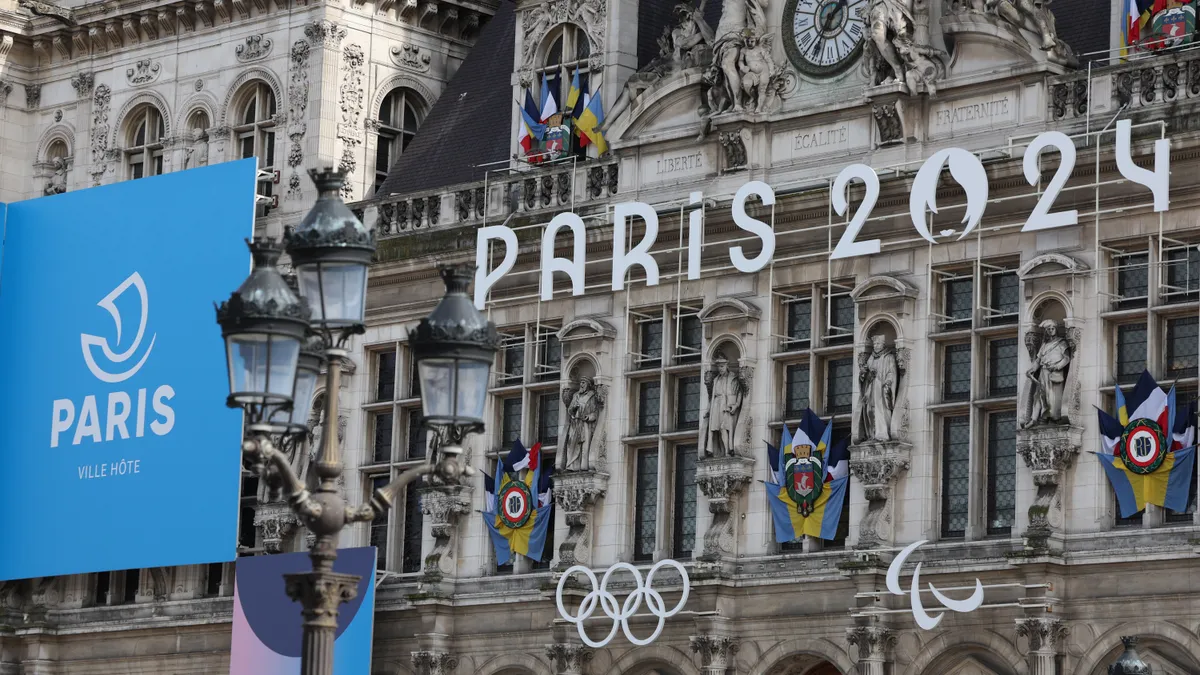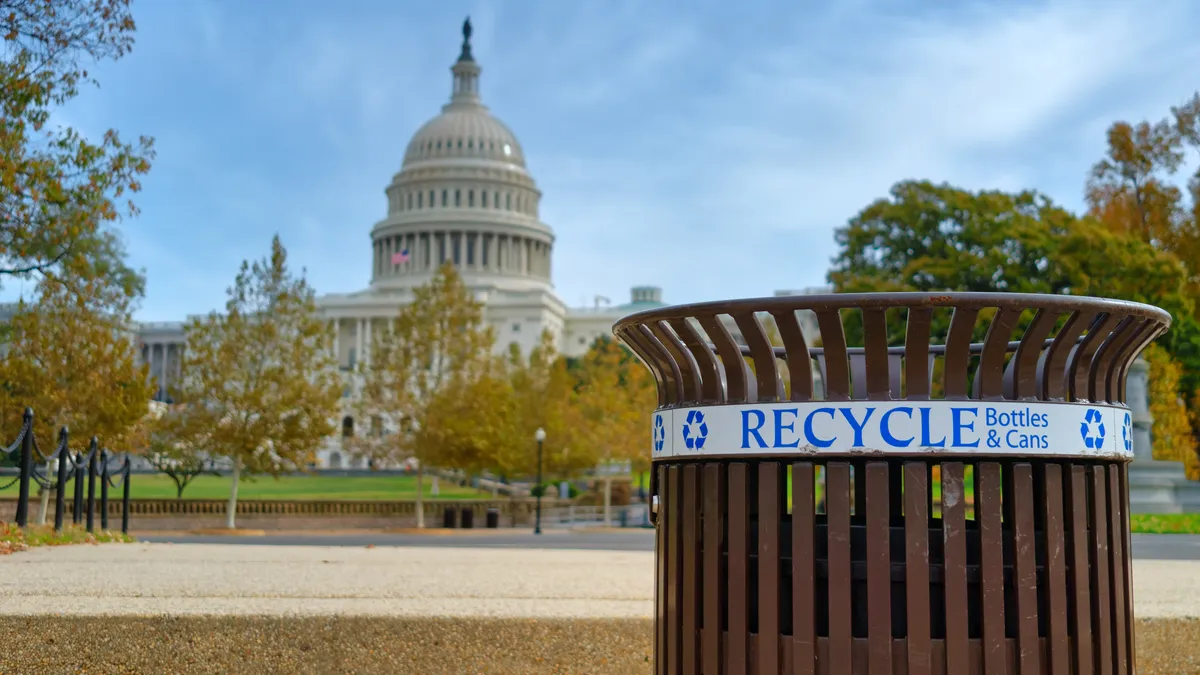The Paris 2024 Olympic and Paralympic Games reported in a recent sustainability review that this year’s events resulted in less single-use plastic consumption than previous years.
Organizers sought to implement a new drinks distribution model involving drinking fountains and returnable bottles.
There was 52% less single-use plastic (by weight) used in the supply of drinks, and specifically a 70% reduction in the number of single-use plastic bottles used to serve beverages, at the 2024 events compared with London 2012. The report said the 70% figure factored in a lower volume of beverages served in Paris versus London.
A spectator survey suggested that 80% brought a water bottle to the venues. Event organizers attributed this to the availability of and alerts to free water fountains on-site and “extensive communication encouraging the use of water bottles.”
As for overall waste, organizers reported that nearly 79% of waste from operations was “recovered or avoided.”
Paris 2024’s efforts to minimize waste involved training employees and service providers and harmonizing signage to improve sorting. That signage was designed by Citeo, a producer responsibility organization in France that also created guidance on “ecodesign” for packaging, and packaging in catering, to share best practices going forward.
Overall, Paris 2024 reported that it reduced greenhouse gas emissions of the Summer Games by 54.6%, compared with the averages of London 2012 and Rio 2016.
According to ocean conservation nonprofit Oceana, Paris 2024 was the largest sporting event ever to serve beverages in reusable packaging.
“The Paris 2024 Olympics have demonstrated that reusable packaging used at-scale can dramatically reduce single-use plastic,” Dana Miller, Oceana’s director of strategic initiatives, said in a statement in response to the report. “All eyes are on the Olympic Movement and future games including Milano Cortina 2026 and Los Angeles 2028 to follow suit and commit to reuse.”
Still, Oceana critiqued aspects of how reuse systems were executed at the Games. For one, some beverages were poured into reusable cups from single-use plastic bottles, Miller said.
“Reuse systems at future games should be designed to minimize waste, and they should not feature single-use plastic,” Miller said. Oceana also noted that Coca-Cola, a sponsor of the Olympic Movement, recently eliminated its voluntary company reuse goals.
The next Winter Olympics and Paralympics will be hosted in Italy. Milano Cortina 2026 says on its website that it won’t commit to “ high-sounding promises” but “aims to adopt a realistic, concrete and progressive approach to sustainability and its legacy, which involves all stakeholders.” As for the next Summer Games, the LA28 organization has collaborated with environmental organizations such as Heal the Bay on sustainability plans.















